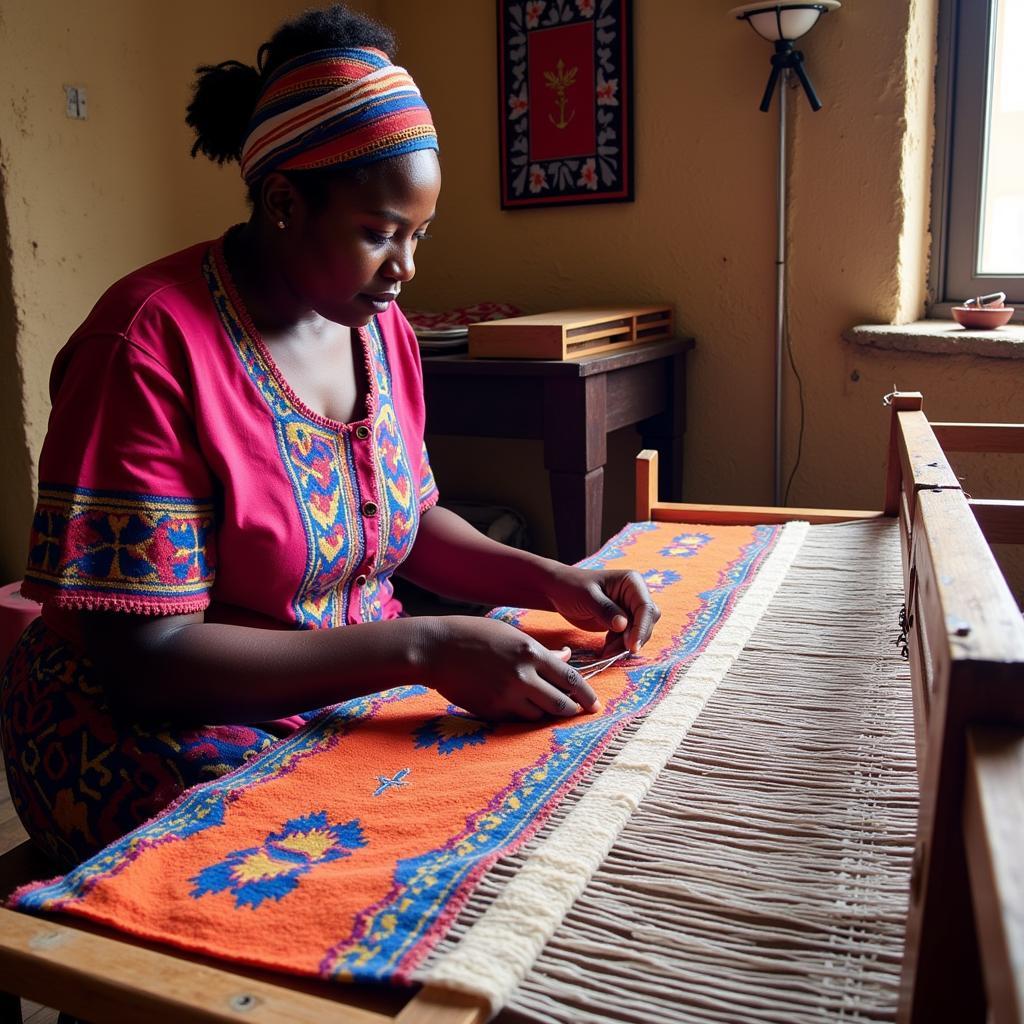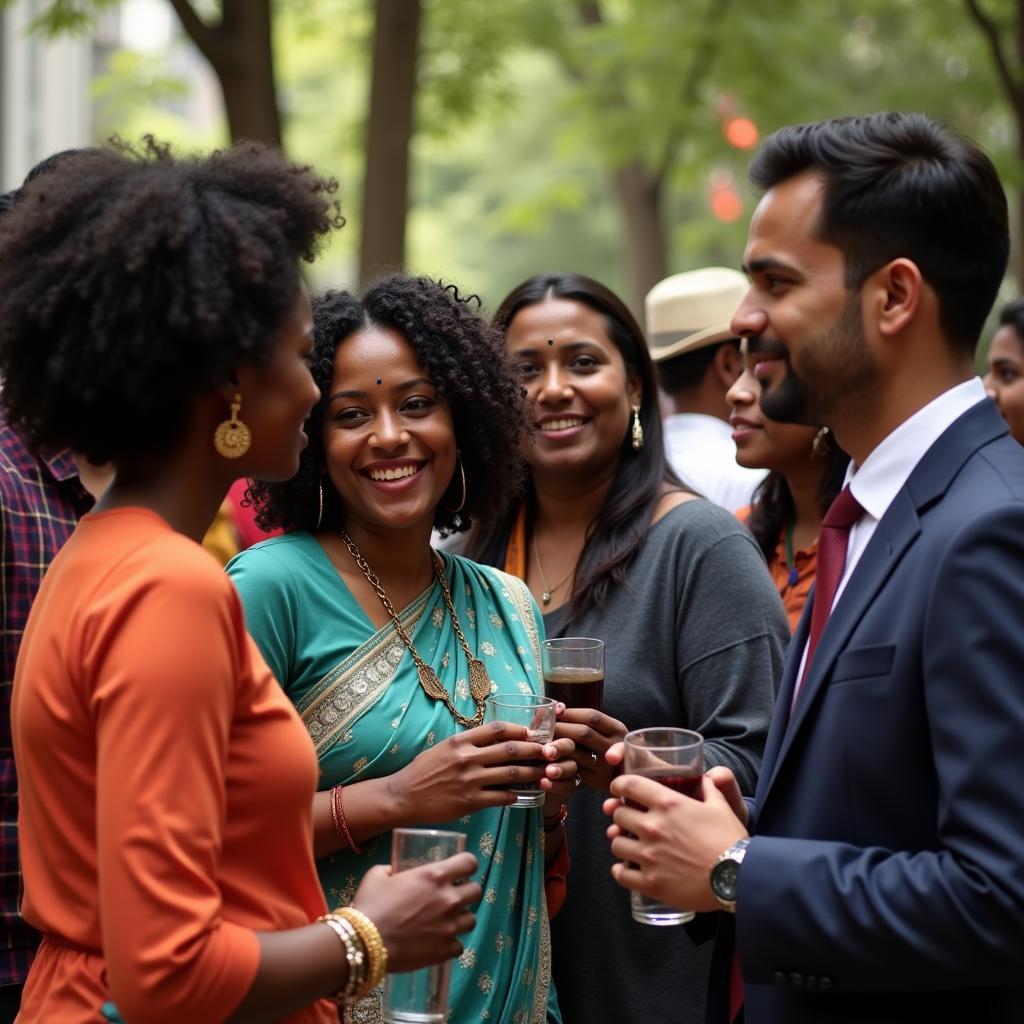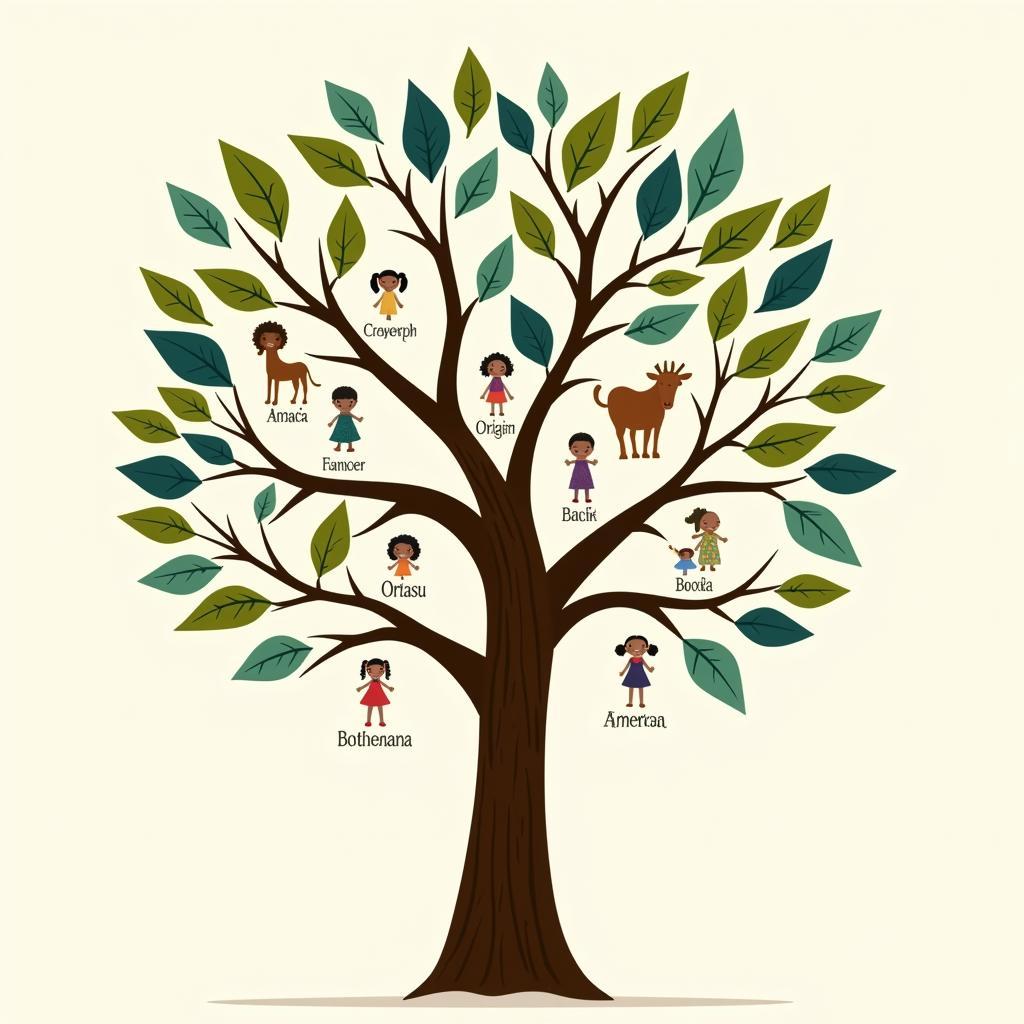Exploring the Vibrant World of African Handmade Crafts
African Handmade Crafts represent a rich tapestry of cultural heritage, artistic expression, and sustainable practices. From intricate beadwork to boldly patterned textiles and hand-carved wooden sculptures, these crafts offer a glimpse into the diverse traditions and unique stories of communities across the African continent. african george handmade is just one example of the vibrant artistry found in these creations.
The Cultural Significance of African Handmade Crafts
African crafts are more than just decorative objects; they are imbued with deep cultural meaning and often play a vital role in traditional ceremonies, rituals, and everyday life. These crafts often symbolize social status, spiritual beliefs, or ancestral connections, passed down through generations. For example, masks used in ceremonial dances embody spirits and ancestors, while intricately woven baskets can represent community and kinship.
Many crafts also serve practical purposes, showcasing the ingenuity and resourcefulness of African artisans. From utilitarian pottery and woven mats to skillfully crafted tools and musical instruments, these items demonstrate a deep understanding of local materials and techniques.
Discovering the Diversity of African Handmade Crafts
The vast African continent boasts an incredible array of craft traditions, each reflecting the unique environment, resources, and cultural identity of its people.
Exploring Regional Styles and Techniques
West Africa is renowned for its vibrant textiles, such as kente cloth from Ghana and adire from Nigeria. african cushion covers showcase these textiles in home decor items. These intricate fabrics, often dyed with natural pigments, are woven or stamped with elaborate patterns that tell stories and express cultural identity. Southern Africa is celebrated for its exquisite beadwork, used to create jewelry, clothing, and decorative objects. The Zulu people, for instance, are known for their intricate beadwork designs that convey messages and symbolize social status.
East Africa is famous for its soapstone carvings, often depicting animals, people, or abstract forms. These smooth, polished sculptures are prized for their aesthetic beauty and tactile quality. North Africa is known for its intricate metalwork, including jewelry, lamps, and decorative objects. These items often feature delicate filigree work and are inlaid with precious stones.
What are some popular African handmade crafts?
Some of the most popular African handmade crafts include:
- Textiles: Kente cloth, Bogolanfini mud cloth, Kuba cloth
- Beadwork: Maasai beaded jewelry, Zulu beadwork
- Wood carvings: Makonde sculptures, Ashanti stools
- Metalwork: Tuareg jewelry, Moroccan lamps
- Pottery: Ethiopian pottery, Moroccan tagines
The Importance of Supporting African Artisans
Purchasing african handmade crafts directly supports the livelihoods of talented artisans and helps preserve their cultural heritage. By choosing handcrafted items, you are investing in sustainable practices and contributing to the economic well-being of communities across Africa. african beads wholesale suppliers represent an opportunity for entrepreneurs.
Awa Thiam, a renowned Senegalese textile artist, states, “Our crafts are not just objects; they are a living expression of our culture, our history, and our identity.”
 Senegalese Textile Artisan at Work
Senegalese Textile Artisan at Work
african foot jewelry showcases the beautiful, hand-crafted jewelry of Africa.
Conclusion: Embrace the Beauty and Cultural Richness of African Handmade Crafts
African handmade crafts offer a unique and meaningful way to connect with the diverse cultures and artistic traditions of the African continent. By appreciating and supporting these crafts, we can help ensure that these valuable traditions continue to thrive for generations to come.
FAQ
- What are some common materials used in African crafts?
- Where can I buy authentic African handmade crafts?
- How can I tell if an African craft is authentic?
- What is the significance of different colors and patterns in African crafts?
- Are African crafts environmentally friendly?
We encourage you to explore the world of African artistry and discover the captivating stories behind each handcrafted creation. When you need assistance please contact Phone Number: +255768904061, Email: [email protected] Or visit: Mbarali DC Mawindi, Kangaga, Tanzania. We have a 24/7 customer service team.



